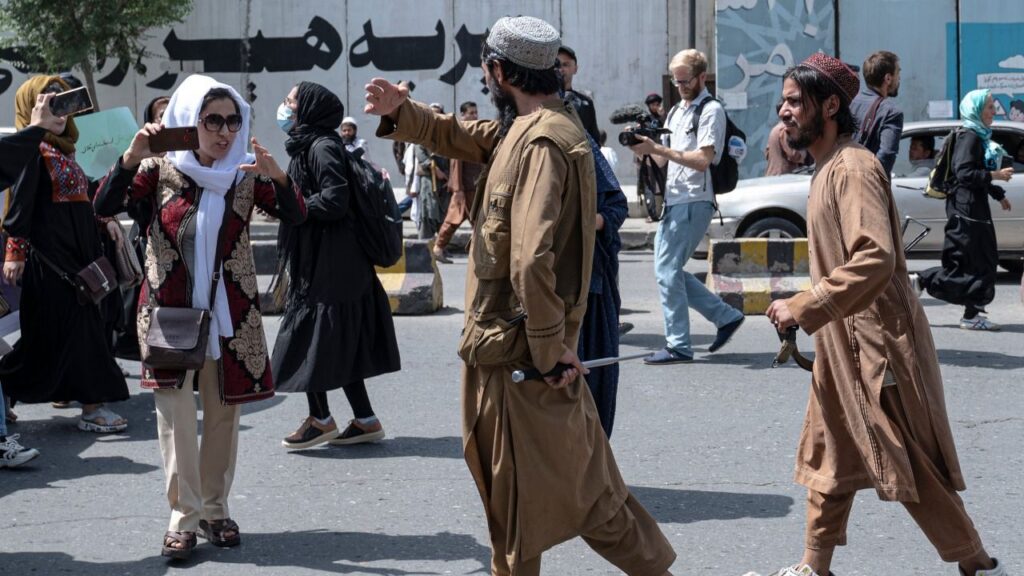Taliban fighters march across Kabul on August 13, 2022, shooting in the air to disperse Afghan protestors.
Given the rapid retreat of US and NATO soldiers from Afghanistan after two decades of military involvement, the Taliban took control of Kabul on August 15, 2021, with little opposition.
The chaos of foreign forces leaving persisted until August 31, as tens of thousands of residents flocked to the capital’s single airport, attempting to board any available aircraft.
The world watched in astonishment as crowds raced to jets parked on the runway, climbed on them, or clung to a US military cargo plane as it took off.
The Taliban declared a public holiday on Monday to honour a year since their return to power in Afghanistan, a year marked by a massive humanitarian catastrophe and a significant decline in women’s rights.
So yet, no official celebration has been planned, with the exception of Monday, which has been declared a holiday, though state television has suggested that special programmes would be shown, with no additional details.
A year later, Taliban fighters are relieved to see their movement in power, but humanitarian organisations warn that half of the country’s 38 million inhabitants remain impoverished.
It was a wonderful time when we entered Kabul and when the Americans left, said Nimatullah Hikmat, a member of the Special Forces in charge of protecting the presidential palace.
However, the Taliban’s return has aggravated the situation for ordinary Afghans, particularly women.
Despite their early claims, the countrys new leaders promptly resumed the rigorous interpretation of Islamic law that characterised their previous regime from 1996 to 2001, severely curtailing womens rights.
Women were largely restricted from government posts and from travelling alone outside of their home city.
In a well publicised move in March, the Taliban barred girls from enrolling in middle and high schools only hours after they reopened.
In early May, the Taliban’s top leader, Hebatullah Akhundzada, ordered women to wear the niqab in public. The Taliban have made it clear that they prefer women to wear the burqa, although they will allow alternative types of veiling that display just the eyes.
According to Kabul native Ugai Amail, life lost meaning the day they came.
They seized everything from us, even our personal space.
Taliban militants holding rifle butts and live ammo disrupted a planned rally by forty women seeking the right to work and an education on Saturday.
Although Afghans recognise a reduction in violence since the Taliban gained power, many are still suffering as a result of a horrific economic and humanitarian disaster.
People who come to our shops complain so much about the expensive prices that we merchants begin to loathe what we’re doing, said Noor Muhammad, a shopkeeper from Kandahar, the Taliban’s historic cradle and power base in the country’s south.
The joy of victory, however, overshadows Islamist militants’ current economic woes.
We may be poor and suffer difficulties, but the white flag of Islam will always fly high in Afghanistan, one of these fighters vows.
The Taliban has been in control for one year, despite a decline in women’s rights and a humanitarian calamity.

